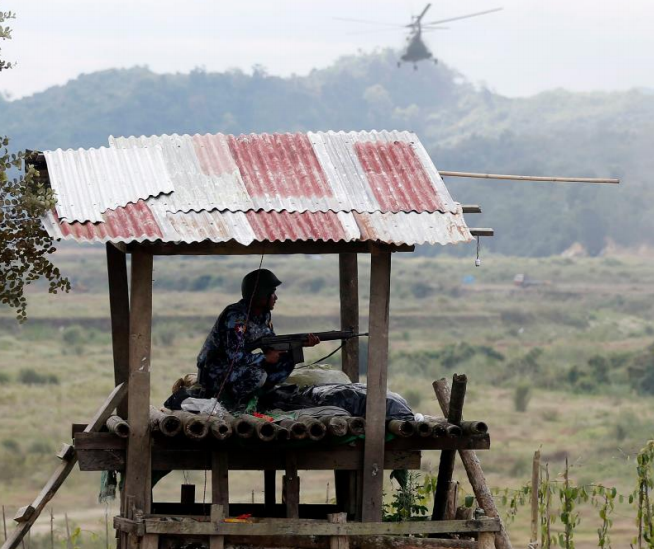Amnesty International has found that Myanmar's army is committing new war crimes against ethnic Rakhine rebels.

Photograph: Amnesty International
Amnesty International's new report, "'No one can protect us': War crimes and abuses in Myanmar's Rakhine State," documents violations of international humanitarian law and human rights abuses in Rakhine state since 4 January 2019. The report details how the Myanmar military has been killing and injuring civilians in indiscriminate attacks, carrying out extrajudicial executions, arbitary arrests, torture and enforced disappearances.
On 4 January 2019, the Arakan Army, an ethnic Rakhine armed group fighting for more autonomy in the Rakhine, launched coordinated attacks on four police posts in the northern Rakhine state which killed 13 police officers and injured nine others. Following these attacks, a government spokesperson announced that the army had been instructed to "crush" the Arakan Army.
The report uncovers evidence of abuses committed by military troops implicated in past atrocity crimes which "highlights the institutionalised and systemic nature of military abuse in Myanmar."
The majority of the violations have been committed by the Myanmar military but the Arakan Army have also perpetrated abuses, including abductions and arbitary deprivation of liberty.
In the report Amnesty urges the United Nations Security Council to refer Myanmar to the International Criminal Court an to impose an arms embargo.
Nicholas Bequelin, Regional Director for East and Southeast Asia at Amnesty International said, "less than two years since the world outrage over the mass atrocities committed against the Rohingya population, the Myanmar military is again committing horrific abuses against ethnic groups in Rakhine State."
Myanmar's security forces has previously been accused of serious crimes in the Rakhine state. In August 2017, the Myanmar military launched an attack on the Rohingya population in northern Rakhine. The security forces killed, raped and tortured women, men and children. The violence forced over 700,000 people to flee to neighbouring Bangladesh.
Read the full report here.
